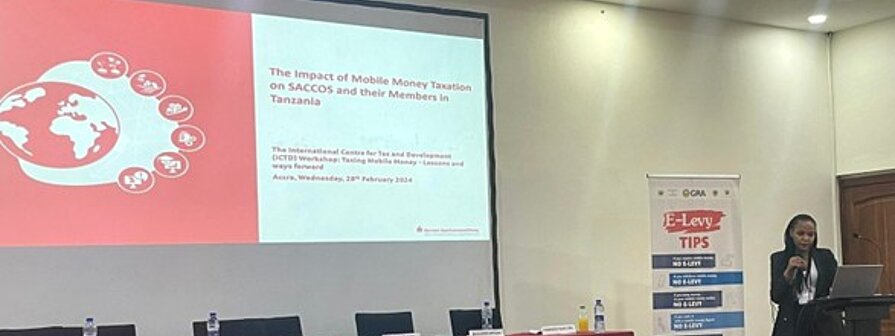The Impact of Mobile Money Taxation on SACCOS and their Members in Tanzania
An in-depth study on how mobile money tax policies affect financial inclusion
While Microfinance Institutions (MFIs) and Savings and Credit Cooperative Societies (SACCOS) in Tanzania have already improved the access to formal financial services, mobile money has driven financial inclusion in an unprecedented way. As of June 2021, there were more than 33 million mobile money subscriptions in Tanzania (Tanzania Communications Regulatory Authority 2021). The mobile wallets offered by the six mobile network operators (MNOs) Vodacom, Tigo, Airtel, Halotel, TTCL and Zantel are the only way to access formal financial services for millions of Tanzanians. Some MFIs and SACCOS started complementing their financial services with mobile money products. Some of the larger SACCOS that German Sparkassenstiftung Eastern Africa (DSIK) supports have started to use mobile money as a channel to facilitate their members transactions.
On 1st of July 2021, the Tanzanian government introduced a new tax on mobile money transactions, increasing the costs of mobile money transfers and withdrawals in addition to the pre-existing 18% VAT and excise duty of 10%.
Funded by the International Centre for Tax and Development (ICTD) under the DIGITAX Research Programme, with support from the Bill and Melinda Gates Foundation, DSIK implemented a research project to investigate the impact of Tanzania’s mobile money tax on Micro and Small Enterprises (MSEs). While formerly many MSEs were reliant on informal financial services, mobile money offered access to formal financial services for these MSEs.
The study explored how the tax, initially set between 0.50% and 4.80% per transaction in July 2021, affected the usage, demand, and perception of mobile money services, particularly among MSEs members of SACCOS. A key focus of the research was the influence of the tax on loan repayment behavior, tracking developments from the tax’s introduction through its subsequent reductions. With the project now concluded, findings published in November 2024 offer policymakers evidence-based recommendations to help balance taxation with financial inclusion. The working paper can be accessed here.
The goal is to ensure that tax policies do not undermine MSEs’ access to financial services, an essential component of Tanzania’s economic growth.


